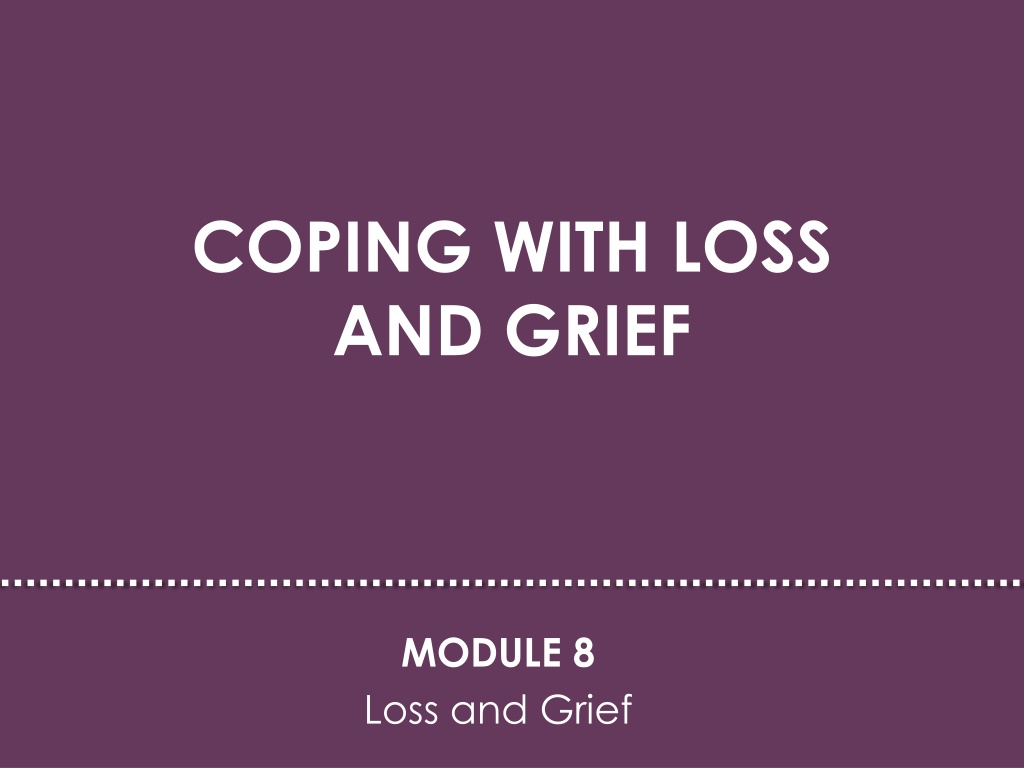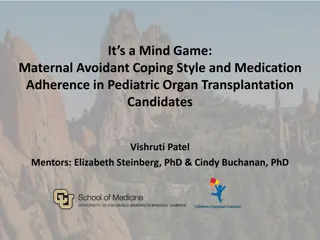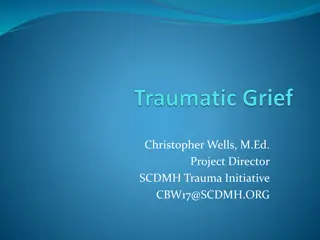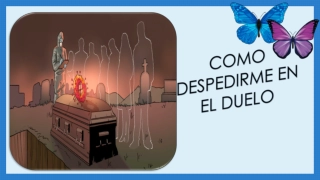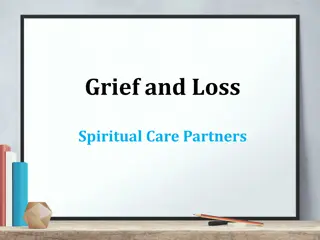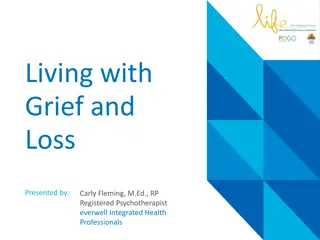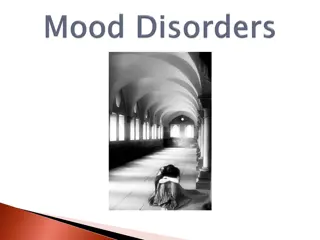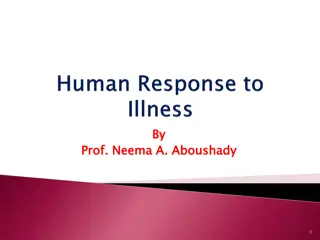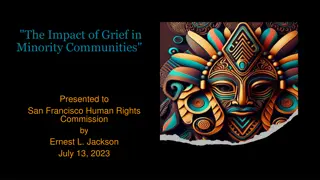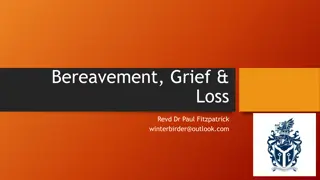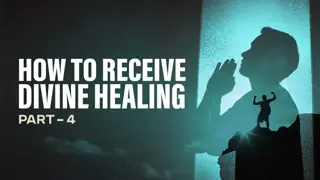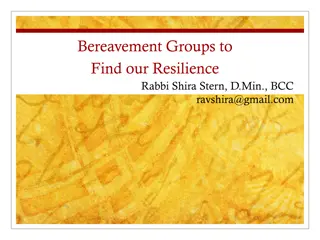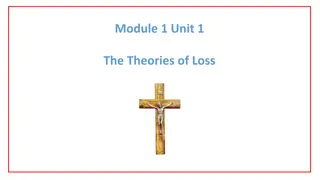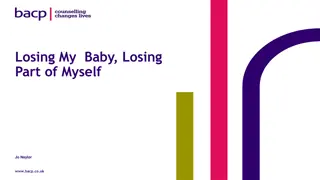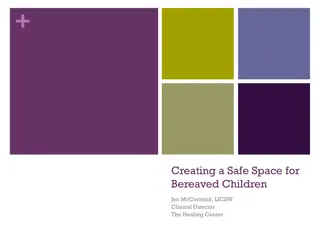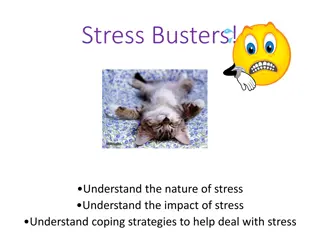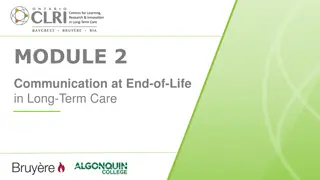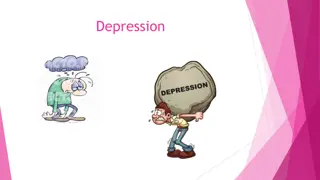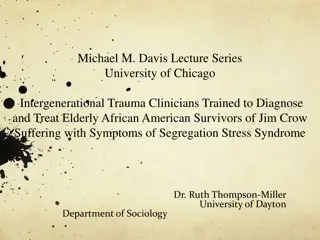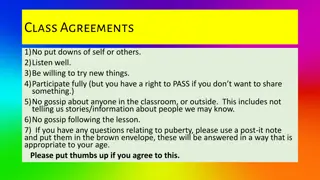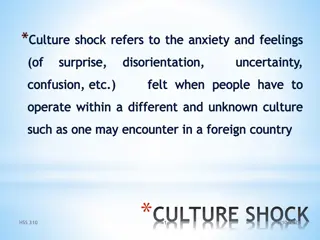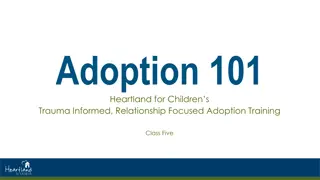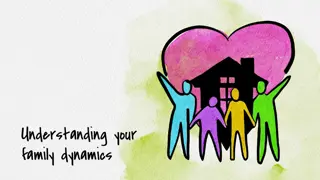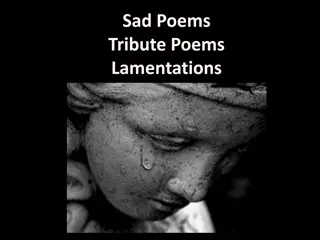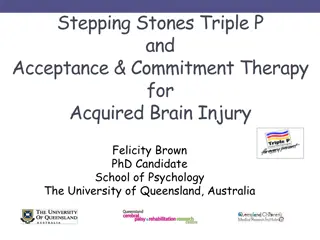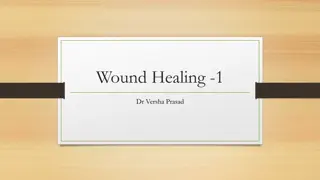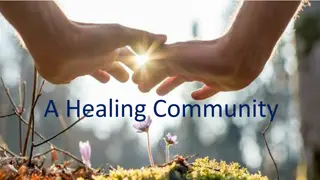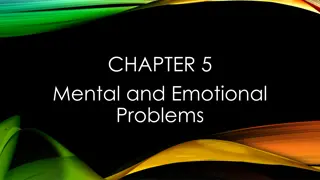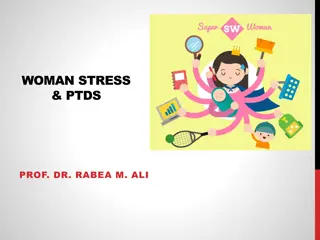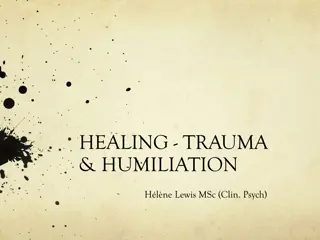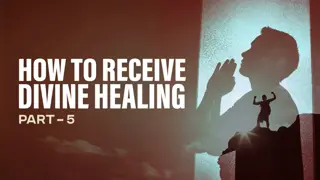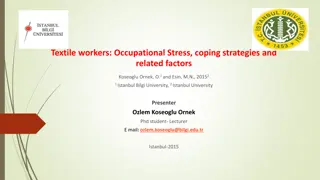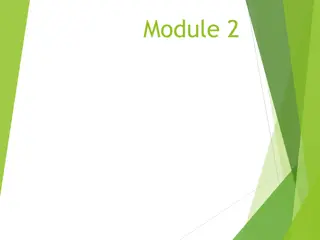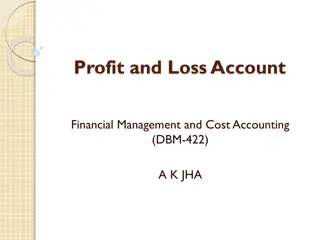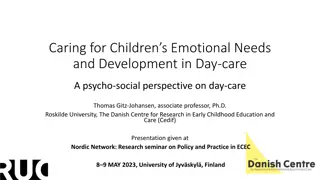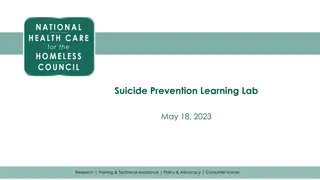Understanding Loss and Grief: Coping Strategies and Emotional Healing
Delve into the complexities of grief, exploring its nature, triggers, and emotional impact. Discover coping mechanisms and the importance of seeking professional support when needed. Recognize the various stages and styles of grieving, empowering yourself to navigate through the healing process with resilience and self-awareness.
Download Presentation

Please find below an Image/Link to download the presentation.
The content on the website is provided AS IS for your information and personal use only. It may not be sold, licensed, or shared on other websites without obtaining consent from the author. Download presentation by click this link. If you encounter any issues during the download, it is possible that the publisher has removed the file from their server.
E N D
Presentation Transcript
COPING WITH LOSS AND GRIEF MODULE 8 Loss and Grief
Activity 1 Identifying the emotions, thoughts, and behaviours that accompany loss.
Outline Define grief Understand the what, why, when, and how of grief Define coping Understand when to recommend professional support for grief View grief as a cycle
What is Grief Intense sorrow: Physical, mental, and emotional suffering from a loss. The more substantial the loss, the more profound the grief. BUT Grief is a natural reaction to loss. Grief is the process that allows restoration following a loss. Grief is the process of adjusting to a change in the relationship following a loss.
Grieving Styles Dissonant Instrumental Intuitive Blended Source: Doka, K.J. and T.L. Martin. 1999. Grieving Beyond Gender: Understanding the Ways Men and Women Mourn. New York: Taylor & Francis Group.
Why do we experience grief? Grief will happen either as an open healing wound or a closed festering wound, either honestly or dishonestly, either appropriately or inappropriately. But emotions will be expressed. Elisabeth Kubler Ross Normal reaction to significant losses
When do we experience grief? Deaths, losses, changes, or deviations in lifestyle During anniversaries or trigger incidents Death of a loved one Divorce or relationship breakup Loss of health Losing a job Loss of financial stability A miscarriage Retirement Death of a pet Loss of a cherished dream A loved one s serious illness Loss of a friendship Loss of safety after a trauma Selling family home
How do we experience grief? Grieving is a personal and highly individual experience and will vary based on personality and coping style, your life experience, your faith, and the nature of the loss. Different stages and styles.
Emotional, Cognitive, and Physical Signs of Grief Numbness and disbelief Sadness, yearning, despair Feelings of guilt Anger and blaming Sense of relief Difficulty focusing or concentrating Insecure, powerless, alone Fatigue, nausea, loss of appetite, weight loss Body aches, diminished immunity Insomnia, indigestion
"You cannot prevent the birds of sorrow from flying over your head, but you can prevent them from building nests in your hair." Old Chinese Proverb
What is Coping? Ways in which one deals with sources of stress and/or trauma. Coping speaks to the cognitive, emotional, and behavioural responses to the demands of situations that are appraised as stressful. Chronic stress and dysfunctional coping among people living with HIV may affect the immune system and explain some of the variation in HIV disease progression Source: Maddux, M. and R. Maddux. n.d. Meditation Oasis. Available at: https://www.meditationoasis.com/.
Emotional Coping Actions such as avoidance, distraction, or prayer to help an individual reduce the negative emotional responses related to the problem. Escaping, distancing, blaming oneself and others, and experiencing feelings of anger, sadness, hopelessness, and helplessness.
Problem-focused Coping Actions to increase understanding and gain more information, take control of the situation by being proactive and evaluating different options for dealing with the problem. Gathering information and resources, planning, making decisions, and taking action to solve or manage the source of stress.
Examples Confide in friends and family Join a support group Consult a therapist or counsellor Gain comfort and relief from your faith Acknowledge your feelings Channel your grief into something creative, artistic, and satisfying Manage your physical health Plan ahead for triggers (e.g., anniversaries) Source: NYSBS HGH & Moringa Zinga. n.d. How to Cope with Loss/Grief. Available at: http://wellness.nysbs.com/tag/coping-with-grief-activities/.
"Gratitude unlocks the fullness of life. It turns what we have into enough, and more. It turns denial into acceptance, chaos to order, confusion to clarity. It can turn a meal into a feast, a house into a home, a stranger into a friend. Gratitude makes sense of our past, brings peace for today, and creates a vision for tomorrow." Melody Beattie
Contact a grief counsellor or professional therapist if you: Feel like life isn t worth living. Feel you ll be better off dead. Wish you had died with your loved one. Engaging in harmful activities (e.g., non-adherence, high-risk activities). Feel that life is empty or meaningless. Blame yourself for the loss or for failing to prevent it. Feel numb and disconnected from others for more than a few weeks. Have extreme anger or bitterness over the loss. Are having difficulty trusting others since your loss. Are unable to perform your normal daily activities.
